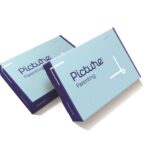In just over two years, Temple City-based Fulgent Genetics Inc. has grown from a modest genetic testing company with $32 million in annual revenue to a behemoth with nearly $1 billion in revenue last year, all because of massive Covid testing contracts.
But all along, one question persisted: What happens when the Covid wave subsides?
On April 18, that post-Covid picture began to emerge as Fulgent announced it had agreed to buy Irving, Texas-based Inform Diagnostics Inc. from New York private equity firm Avista Capital Partners for $170 million in cash. Pending approvals from the companies’ respective boards and various regulators, the deal is expected to close later this quarter.
Inform Diagnostics is one of the largest independent pathology laboratories in the United States, providing patient diagnoses in gastrointestinal pathology, dermatopathology, hematopathology and several others, along with Covid testing. It has laboratories at its Irving, Texas headquarters, as well as in Boston, New York City and Phoenix.

“With this acquisition, Fulgent is diversifying,” said Kevin DeGeeter, managing director of health care research at New York-based Oppenheimer & Co. Inc.
That’s crucial, DeGeeter said, since eventually, Fulgent’s Covid testing business will decrease, even if it never disappears entirely.
Genetic test kits
For Fulgent, the acquisition substantially expands its “core,” or non-Covid testing analysis capabilities. That core business had grown steadily since Fulgent launched its first commercial genetic tests in 2013. In 2019, Fulgent launched its home genetic testing kits, which the company hoped would propel future growth.
But then the pandemic hit and by May 2020 Fulgent pivoted to Covid testing, winning huge volume test contracts with public agencies such as Los Angeles County and the New York City public school system. To handle the huge surge in test volume, Fulgent opened a testing lab in Houston in late summer 2020.
Yet even during the testing rush, Fulgent continued to ramp up the non-Covid side of the business, adding both clients and specific testing services, such as blood sample tests for early detection of liver cancer. For calendar year 2021, Fulgent had grown this side of the business to $123 million, a nearly four-fold increase over 2019.

But the addition of Inform Diagnostics could represent a major leap in the scope and volume of Fulgent’s non-Covid operations.
“We look forward to further expanding Fulgent’s genomic testing footprint with the addition of the Inform Diagnostics team, pathology capabilities and nationwide reach of Inform Diagnostics,” Ming Hsieh, Fulgent’s chief executive said in the announcement. “We expect to see an immediate contribution from Inform Diagnostics’ mature pathology business, while in the longer term we also believe there are numerous synergies across our organizations that will drive sustained momentum across Fulgent’s core testing business.”
High margins
The announcement also referenced an expected ability for Fulgent to cross-sell genetic testing services to Inform Diagnostics’ client base. Inform Diagnostics currently provides services to about 1,300 clients who represent more than 2,700 physicians, according to the acquisition announcement.
While Inform Diagnostics does not disclose revenue, analyst DeGeeter said that in his discussion with Fulgent management following the announcement, Fulgent executives said Inform Diagnostic’s non-Covid revenue was between $90 million and $100 million.
DeGeeter added that unlike Fulgent, Inform Diagnostics’ Covid testing revenue was likely somewhat less than the non-Covid testing revenue; if true, that would put Inform Diagnostics’ total annual revenue at under $175 million and possibly under $150 million.
DeGeeter noted that for Fulgent, an acquisition the size of Inform Diagnostics would have been difficult, if not impossible, were it not for all the revenue coming in from its Covid contracts.
“If they tried to make an acquisition of this size without their Covid testing business, they would have needed huge amounts of stock, since they wouldn’t have had the cash on hand,” he said.
DeGeeter said that with some $1 billion in cash still on hand, Fulgent is likely to make more such acquisitions in coming quarters.
“I would expect to see acquisitions with some assets that are even higher margin,” he said.
While testing lab companies such as Inform Diagnostics typically have margins in the 40% to 50% range, DeGeeter said there are testing and lab services companies out there with more proprietary testing technologies that could offer Fulgent significantly higher margins, perhaps as high as 80%.
Raising guidance
Alongside the announcement of this planned acquisition, Fulgent upped its 2022 guidance for its core (non-Covid) business nearly 50% to $175 million from $120 million.
Fulgent also reported preliminary first quarter revenue results, estimating revenue at $300 million, above the previous guidance of $245 million. The company did not offer an explanation in this release of preliminary results, saying the explanations and the complete results would come with the regularly scheduled earnings release on May 3. But the first part of the quarter included the Covid Omicron variant surge, during which Fulgent had a hard time keeping up with the demand for its Covid home test kits.
Whatever the reason, Fulgent shareholders reacted favorably to the news of the acquisition agreement and the upward revenue guidance revision, sending Fulgent shares up 7% on April 19 to close at $59.14.
But even that increase left the share price far below the peak of just over $100 reached at the end of last year. A general selloff of biotech stocks and investor belief that the worst of the Covid pandemic crisis had already passed contributed to this decline, DeGeeter said.
“Small and mid-sized biotech stocks, including Fulgent, got hammered,” he said.
